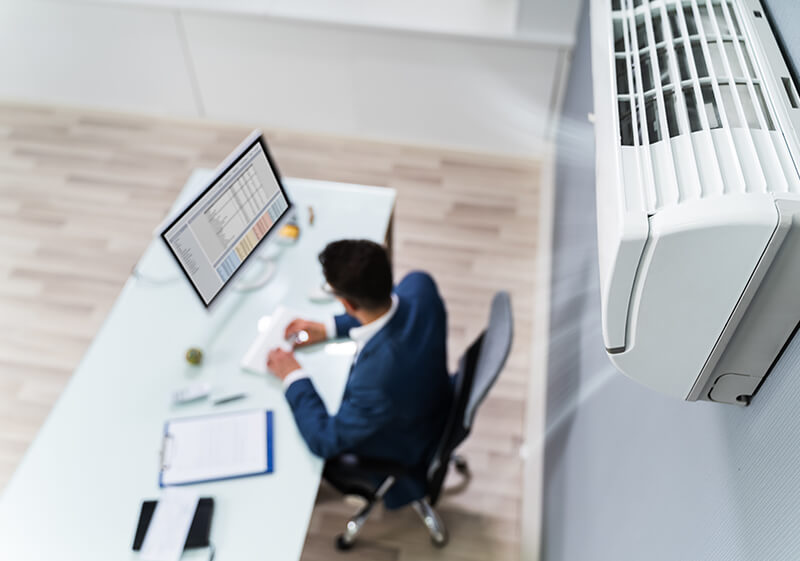Easy Ways to Improve Indoor Air Quality
Indoor Air Quality (IAQ) is a frequently overlooked factor in employee health and well-being. And, unfortunately, poor air quality is seldom recognized until people begin showing obvious health-related symptoms. As such, determining the cause of harmful IAQ is difficult because there may be a host of problems occurring. Thankfully, a certified HVAC professional can help you improve indoor air quality in your building before it’s too late.
Common Causes of Unsafe Indoor Air Quality
One of the leading causes of unhealthy IAQ is dampness, which can lead to microbial contaminants, like mold and bacteria. In fact, mold can hide in air ducts and within walls where it may be difficult to detect. And, hidden mold deposits can then trigger asthma attacks and allergies.
Moreover, mold can grow as a result of humid climates, rainy weather, or undetected plumbing leakage. It can also result from construction defects and inadequate air pressure control.
Similarly, dirt and particulate pollutants can worsen indoor air quality without your knowledge. For instance, outdoor traffic emissions can travel inside and contaminate air quality. Also, certain types of furniture and insulation can introduce pollutants into the air.
How Can You Improve Indoor Air Quality?
Many IAQ factors go undetected, often as a result of a lack of inspection conducted by a trained HVAC specialist. But, before you hire a certified air quality professional, there are preventative measures you can take to maintain acceptable air quality in your building.
1. Ensure air vents are not blocked.
OSHA reports that, over a 10-year investigation, 52 percent of indoor air quality problems resulted from inadequate ventilation.
2. Engage air filtration systems.
Air filtration systems filter dust, mold, and spores out of the environment. This makes a huge difference for individuals who are sensitive to pollutants. Additionally, air filtration is useful when the HVAC system does not adequately process outside air.
3. Clean air ducts periodically.
Air ducts can contain excessive dust, mold, and other contaminants. And, while air ducts are only one component of your HVAC system, they can play a significant role in corrupting IAQ.
Overall, while there are several ways to improve your IAQ, it’s best to consult a specialist first.
Hire A Specialist to Assess Your Air Quality
Air quality specialists will accurately assess your building and develop an immediate strategy. Accordingly, specialists will discover if there are design or construction flaws that need addressing. Did you know that your air quality is dependent on many different factors? Here are some of which you may never consider:
- Furniture placement: The overall floor plan determines how air flows through the building.
- Personal, housekeeping, and maintenance activities: Cosmetics, air fresheners, and other chemicals have an affect on indoor air quality. Especially if your HVAC system isn’t functioning properly.
- Intermingling airflow from mixed-use buildings: If your building shares other types of businesses, the source of your compromised air quality may originate from them.
To sum up, all of these air quality influences affect occupant health and productivity. However, only a trained professional will have the equipment and expertise to handle the problem.
Call on The Severn Group Today
For almost 20 years, The Severn Group has specialized in construction, refurbishment, and maintenance of HVAC systems. Needless to say, HVAC is an essential component of your building, now more than ever. We will work with you to provide the best service package available. So, if you are interested in a new HVAC system or want an assessment on an existing one, contact The Severn Group for an estimate today.

